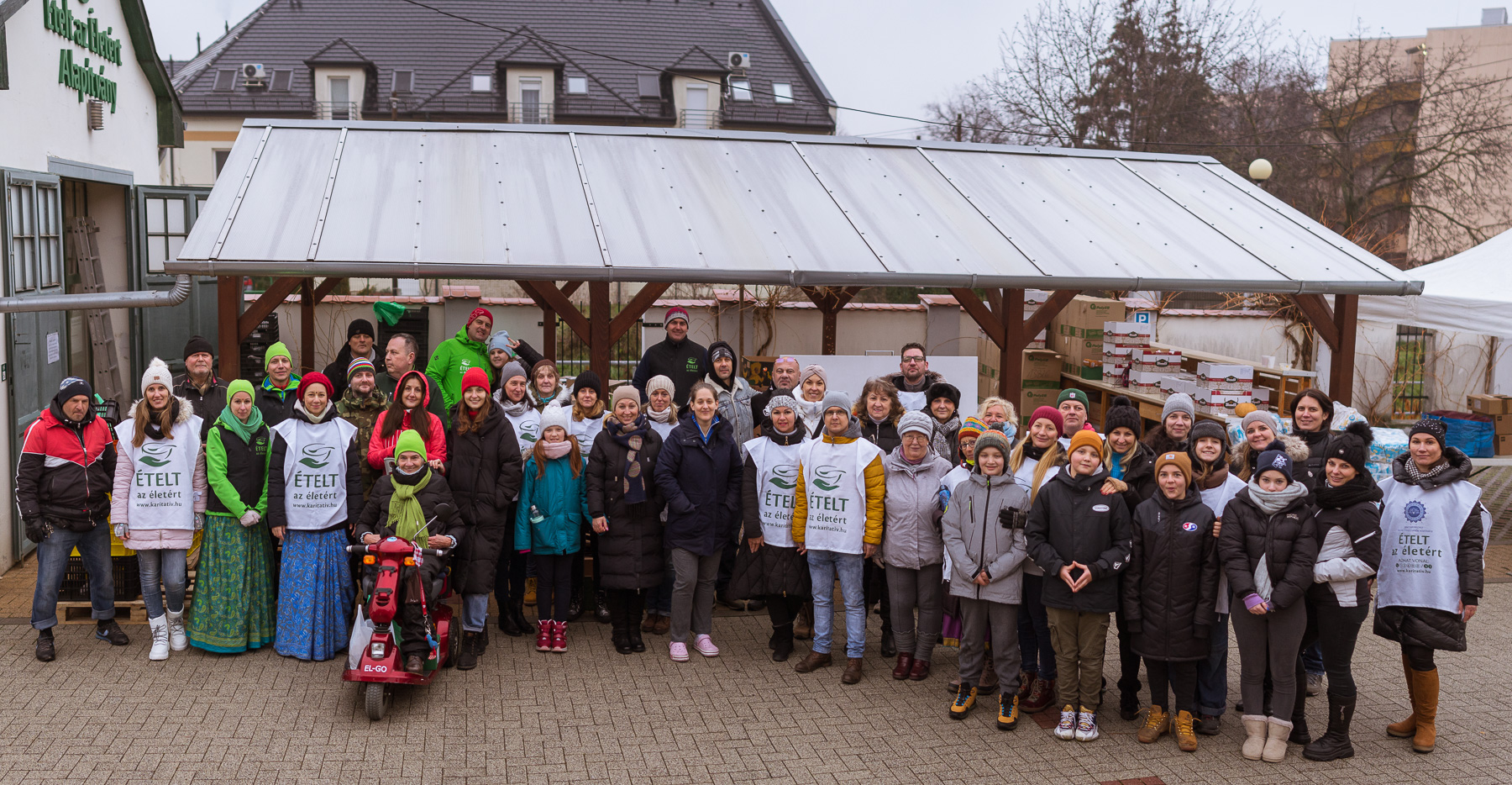

GET TO KNOW US BETTER!
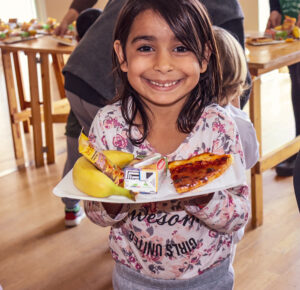
The Food for Life Foundation has been operating since 1999, helping disadvantaged people and families through free food distribution, and carries out its activities on a national basis.
Our goal is to provide the right quality and quantity of food for those in poverty who are unable to provide these for themselves on a daily basis, and for the victims of natural disasters, helping to reduce their disadvantages and preventing from growing further.
because our goals go beyond filling the stomach. In addition to the fact that hot food is a tangible help to some people, we want to improve the overall quality of life and eating habits of our society by demonstrating tolerance for each other.
In Budapest, our public catering program is currently available in Népliget every weekday from noon to one o’clock. In addition to lunch, they also receive dinner, baked goods, fruits and vegetables. In addition to ready meals, In Budapest we also distribute packages containing durable food, of which more than 8,000 packages, each worth HUF 3,500-4,000.
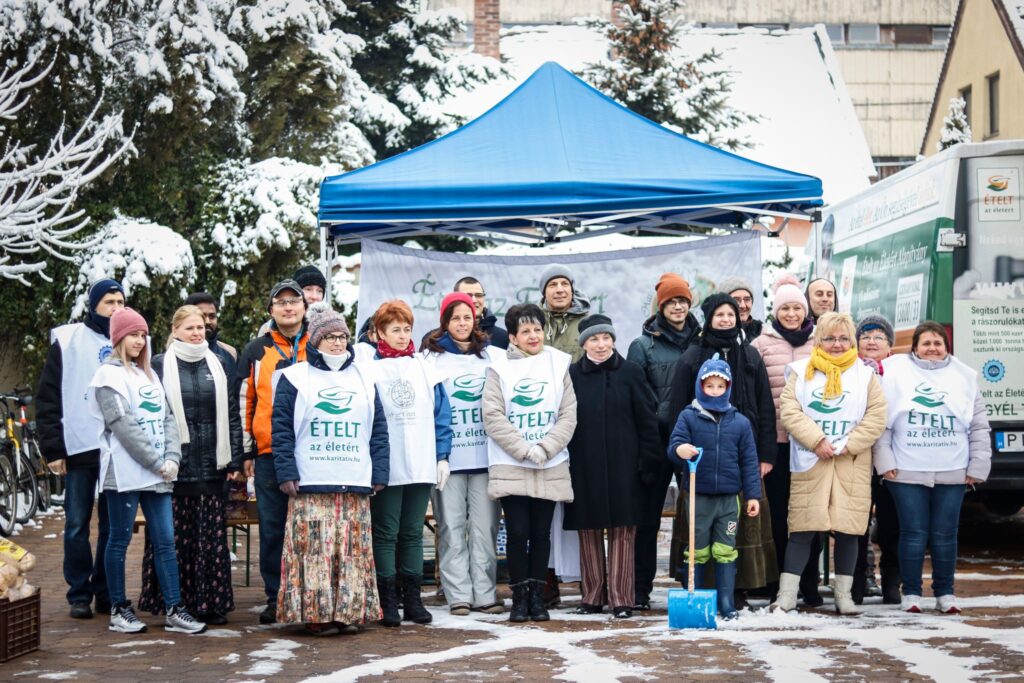
As part of our family assistance program and, in cooperation with the Óbuda Family Counselling and Child Protection Center, we provide a rich lunch for 600 job-seeking, retired and families in need in Óbuda, 5 days a week. In recognition of our work, the Board of Representatives of the Municipality donated the Ágoston Fischer Óbuda Social Prize to our organization and has been supporting it since 2011 within the framework of a cooperation agreement. We have been operating this program in Erzsébetváros since November 2012, where we take care of the residents in need of the district, with the support and cooperation of the local government. From 2017, based on the already well-functioning cooperation model, we also launched our family support program in Zugló.
In addition to providing meals to countless children during our daily meals, we provide 40 daily menus to young people living in the Bokréta Apartment Home of the Budapest Municipality as part of our children’s meals program. We also provide food delivery to help social institutions that cannot provide meals buttheir clients do require this type of assistance. As part of this programme, our employees take food to 19 institutions 6 days a week, so hundreds of fellow human beings living without a cover receive our regular support.
During our festive food distributions (eg Easter, Children’s Day, Christmas, etc.), we distribute thousands of portions of food and cold food packages to those in need nationwide. At Christmas, our programs affect about 6,000 people, in which case we continue our action in cooperation with other social organizations. In Budapest, we present 1,600 servings of food and 1,500 packages a day to the masses of poor people for 3 days.
Our organization is actively involved in helping victims of natural disasters and feeding professionals involved in rescue work as part of emergency relief operations.
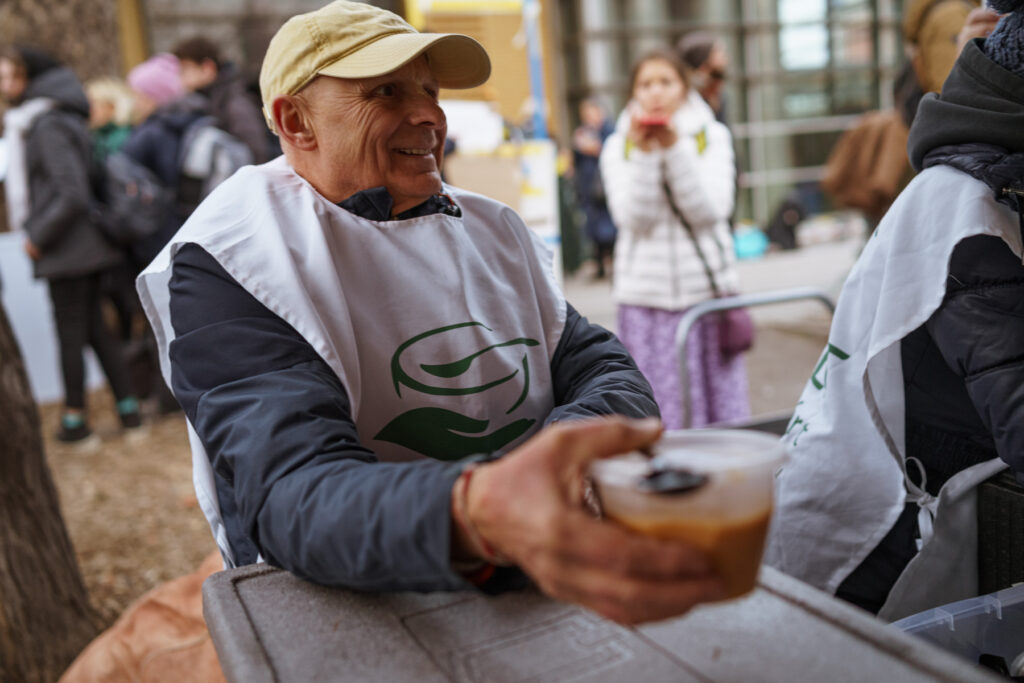
Even during the earthquake in Haiti, the mud disaster, the floods in Hungary and the refugee crisis, our staff helped and will help with many thousands of portions of hot food.
Through the development of our rural sites, we also organize regular food distributions in Debrecen, Eger and the area around Somogyvámos in cooperation with local social care providers and local government bodies.
Our foundation operates a 50-hour program for high school students as part of the 50-hour school community service set forth in the Public Education Act. Under this program, the Foundation provides opportunities for young people for whom the law requires to complete a number of hours (min. 50 hours) of community service as a condition for starting the matriculation exam.
Our target group are those who do not have a household, live below the subsistence level, have very small retirees or have large families. In addition to the above social strata, Roma families, young people in need (drug addicts, people in state care), the disabled, the unemployed, people in debt, and other deprived people also appear, so our charitable work is made to promote and create equal opportunities.
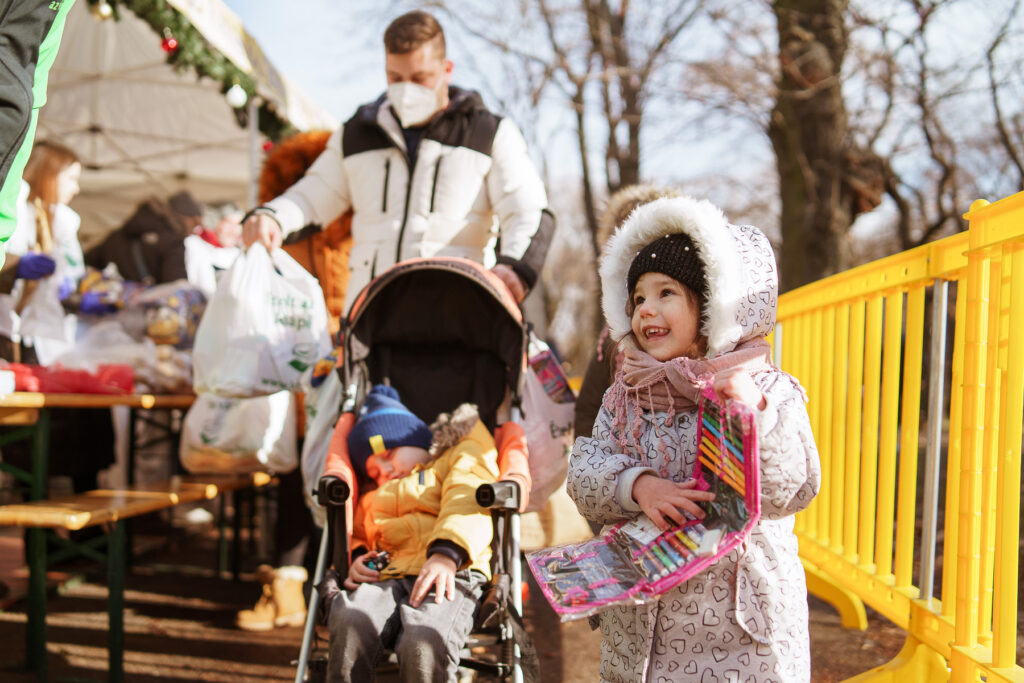
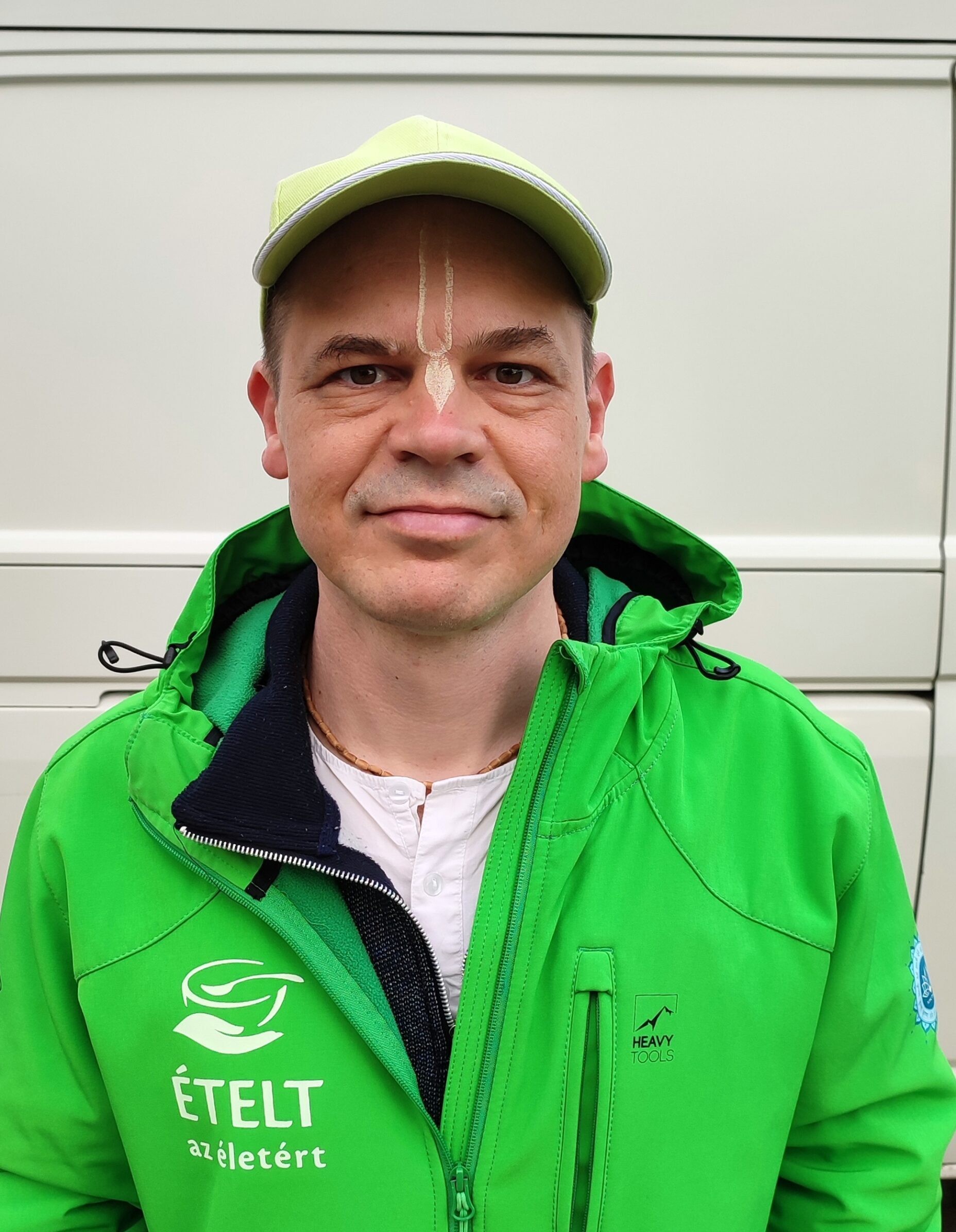
Radha-vallabha Dasa (Site manager, Somogyvámos)

Bhakta Vatsala Dasa (Director of Foundation)
In 1996 I became acquainted with Krishna consciousness. This encounter was not only a step on a simple religious journey, but also an acquaintance with a spiritual culture with a history of 5,000 years, one of the important teachings of which is the role of food. Krishna-conscious believers offer all food to God before consumption, thus becoming purified, consecrated food.
My years in the community have been accompanied by my involvement in food preparation and distribution. Therefore, I was very happy to take on the honorable task of being the leader and employee of the Food for Life Public Benefit Foundation, as this way I can help those in need to live a more spiritually clean life every day. As a believer, it feels good to know that in my daily work, I can bring joy to hundreds of people while also receiving God’s blessing. This food in this way means much more than just meeting bodily needs.
My goal in the future is for the people in need to have even greater access to the fresh and delicious “spiritual food” prepared by our Foundation, which, in addition to nourishing the body, also serves the satisfaction of the soul.
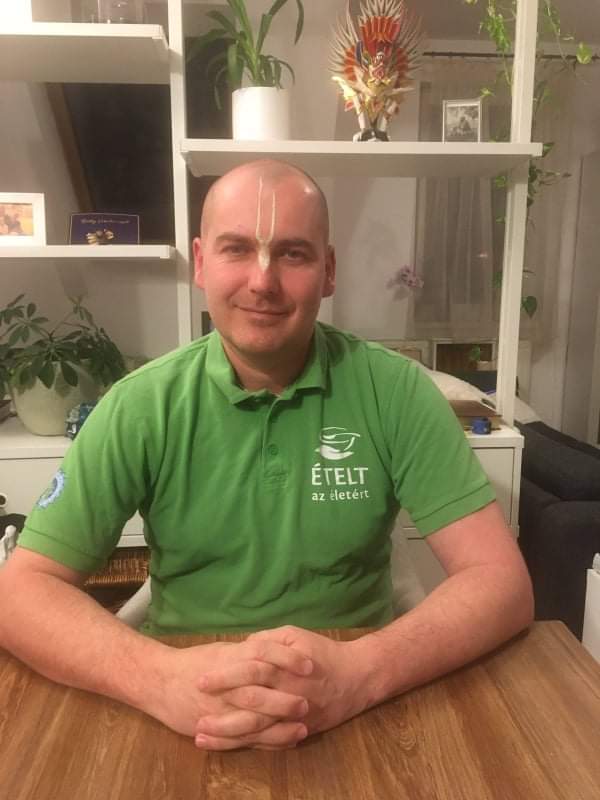
Omkarnatha Dasa (Head of Eger Branch)
Oliver Nyolcas, who is also the chairman of the Eger office of the restaurant and the Foundation, as well as the employees of the restaurant are Krishna-conscious, so they consider it especially important to help the fallen. In addition to rituals, religion is also reflected in their daily activities: they use their opportunities to help people in a bad situation and to try to live an environmentally conscious life. It is believed that faith can be most perfectly manifested in practical deeds and service.
After several years of skipping, Oliver returned to the restaurant in 2017, when he also took over its management. He is a man who saw the world. He has lived with his family both in the United States and in India. In the latter, he experienced what it is like to donate as an integral part of culture. There, the priests, the holy people, have no income of their own, they live entirely on the donations they receive, and society considers it its duty to help them. In addition, there is a beautiful tradition of hospitality in India. Wealthy social strata often call the poor to the table, and their homes are always open to the needy. In addition to ceremonies, food is often distributed to those in need in churches today.
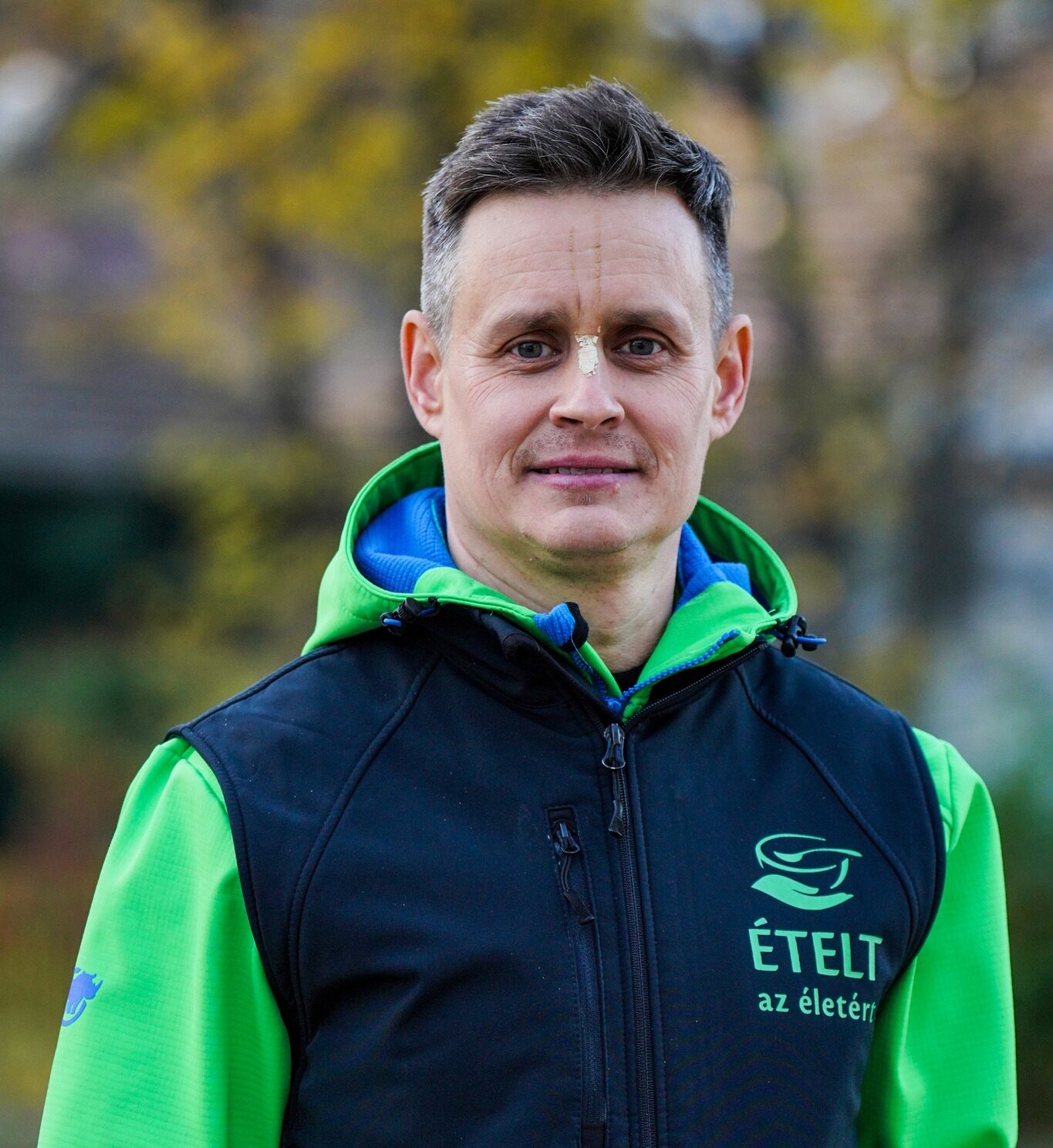
Viktor Lombeczki (Head of Office)
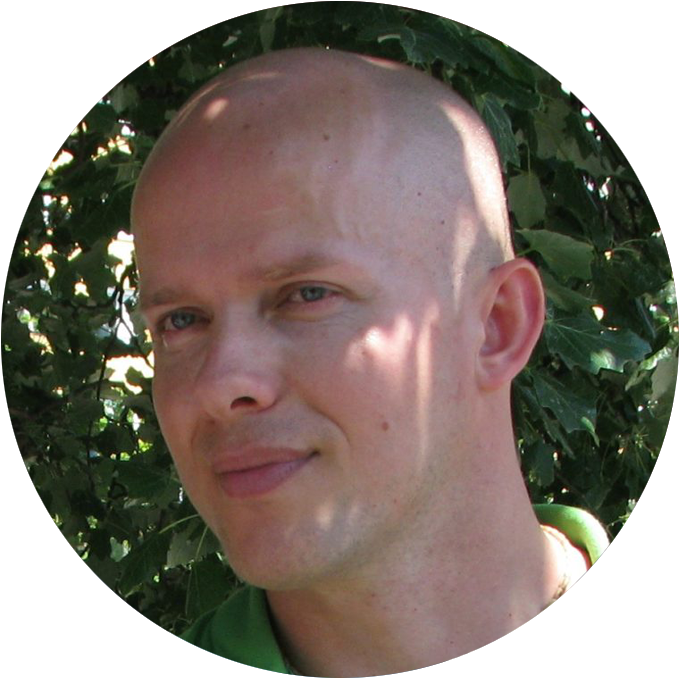
(Site Manager, Budapest)
By the grace of a monk, I received a copy of Bhagavad Gita As It Is about ten years ago. This gave me the opportunity to get to know the philosophy and the principles of Krishna-consciousness. The part of Vedic philosophy dealing with self-improvement was very attractive for me and I also liked the principle that we should live not just for our own interest but also to help others.
In my situation then I had to get up at 2am to be able to participate in the temple morning programme. In the meantime I was assisting the mission at weekeds or on holidays. Then in 2014 I got the opportunity to participate in the food distribution on a daily basis and personally help the needy. Of all forms of food distribution, my favourite is the open street distriubution because this gives an insight into the lives of the most fallen, the poorest and the most unlucky. These underprivileged people are very good and valuable people and I develop a personal relationship with them if they come at least for a week to the distribution point.
I am often deeply moved but the intention of most of them to reciprocate somehow the care we give them. Anyone can get into trouble, but if we turn towards them in a caring mood a kind of mutuality develops and we can help each other to advance.
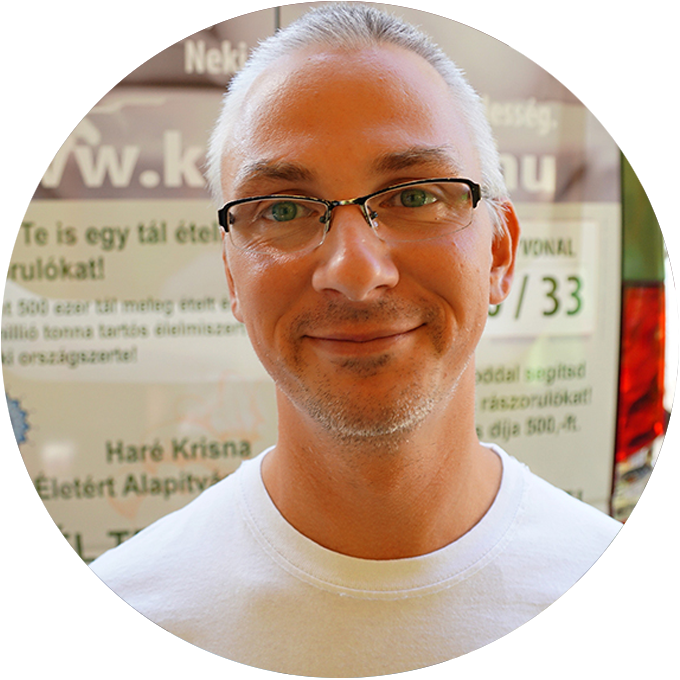
(Chef, Budapest)
Since 2002 I have worked in the world of gastronomy and big pots. At the beginning I was given small tasks: transferring the preparations from the kitchen vessels to the distribution containers and was learning the differences between small scale and large scale cooking. In the meantime, we acquired larger cauldrons so that we can increase the quantity. Presently the daily quantity we cook with my colleagues is about 1900 portions.
I have worked in food distribution since November 2011.
I love to test new recipes, to learn new things and, of course, to please our guests by giving them tasty, sanctified food.